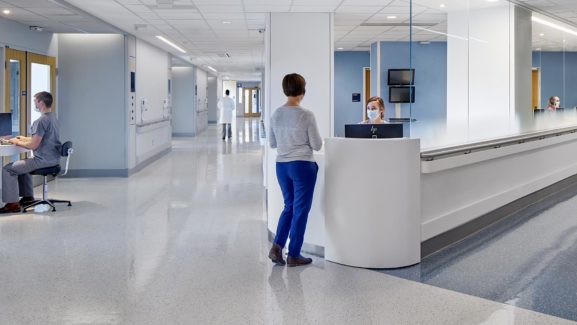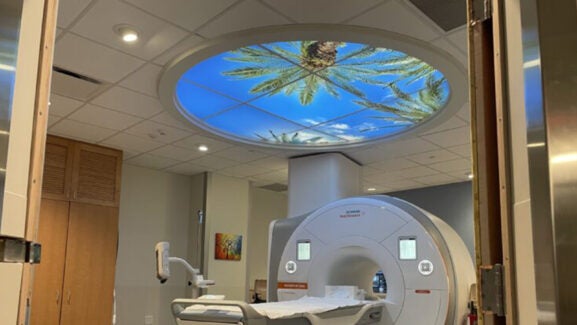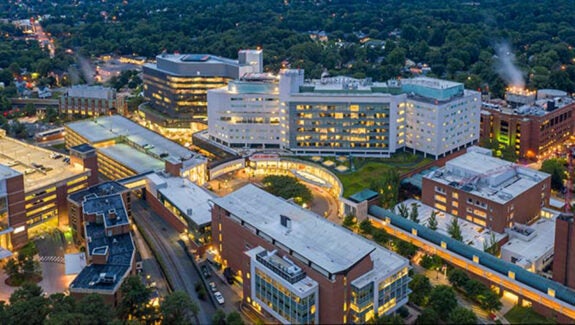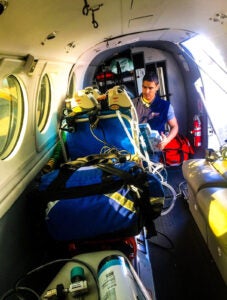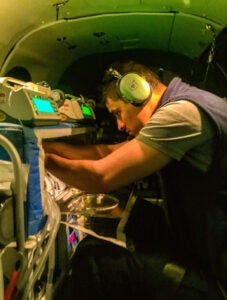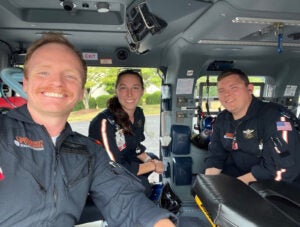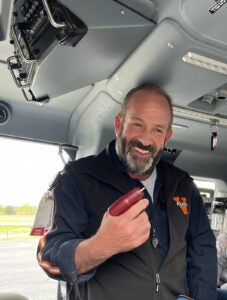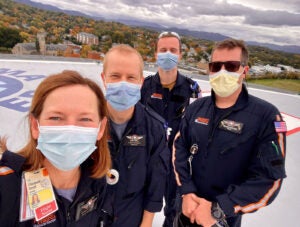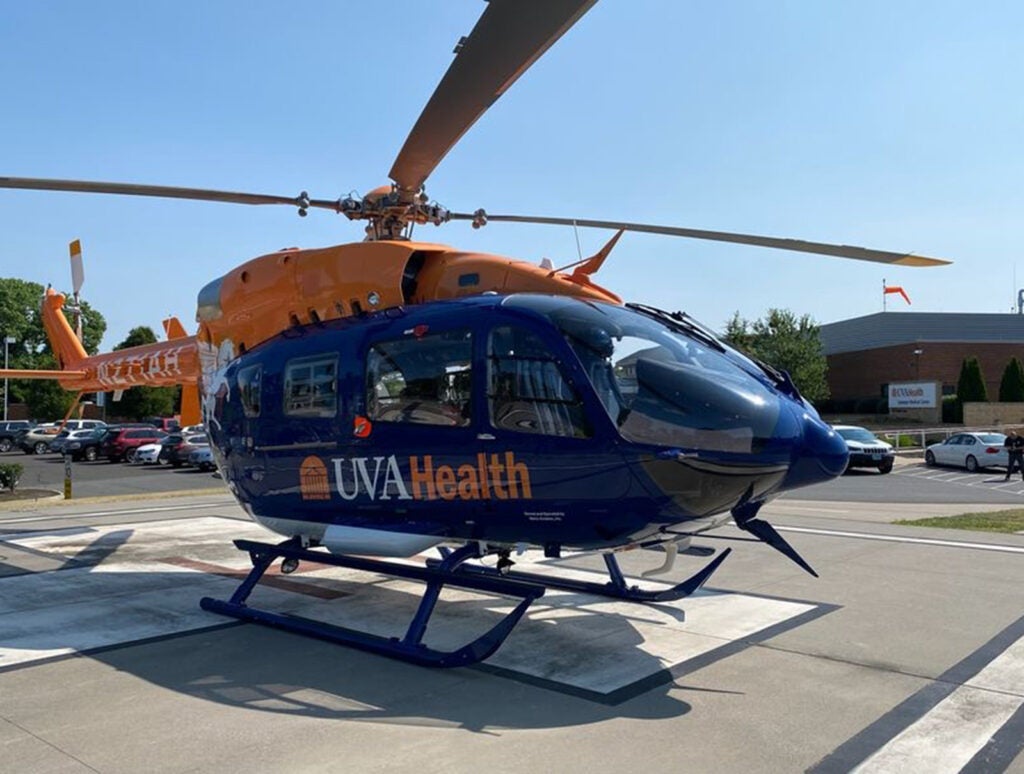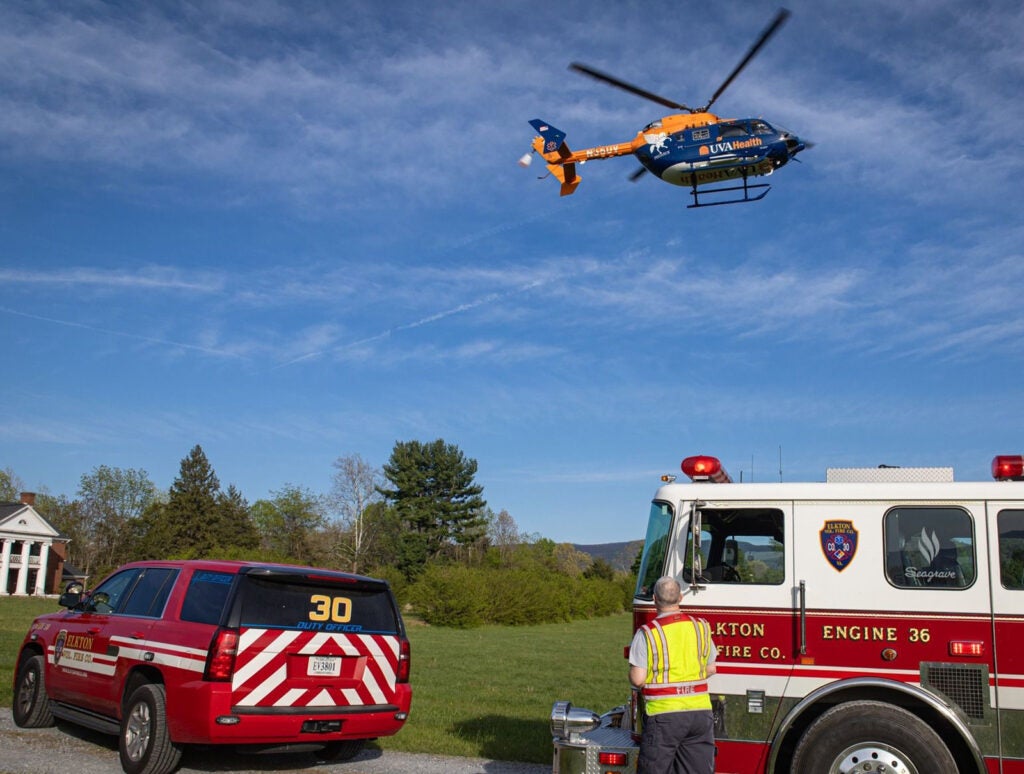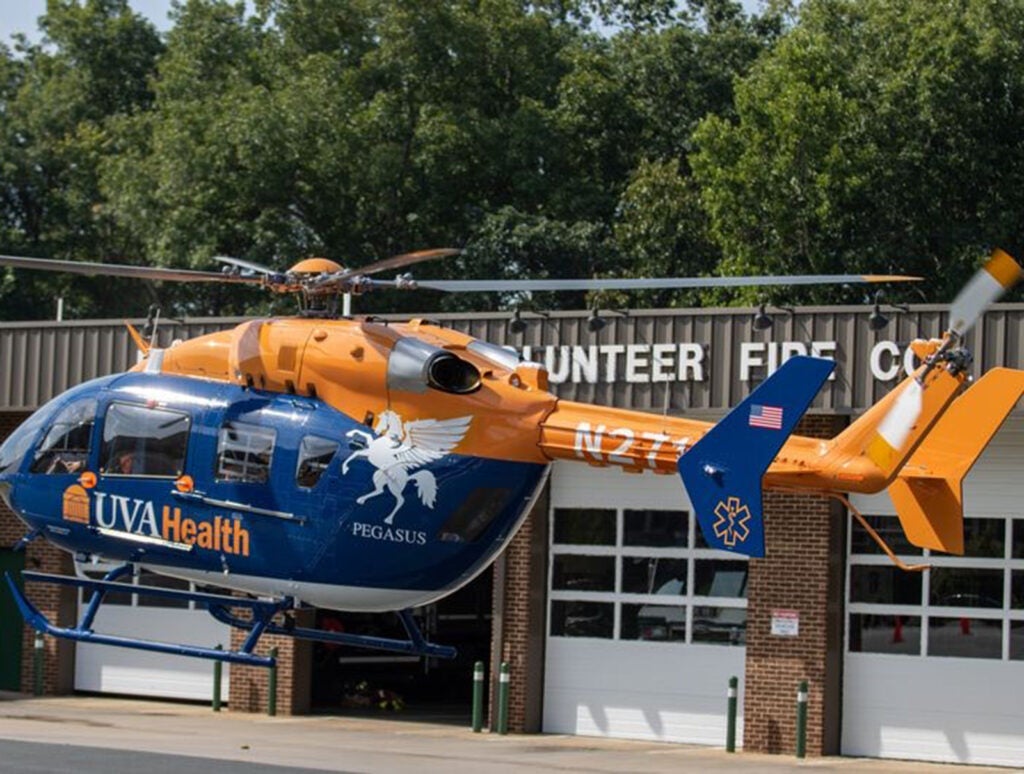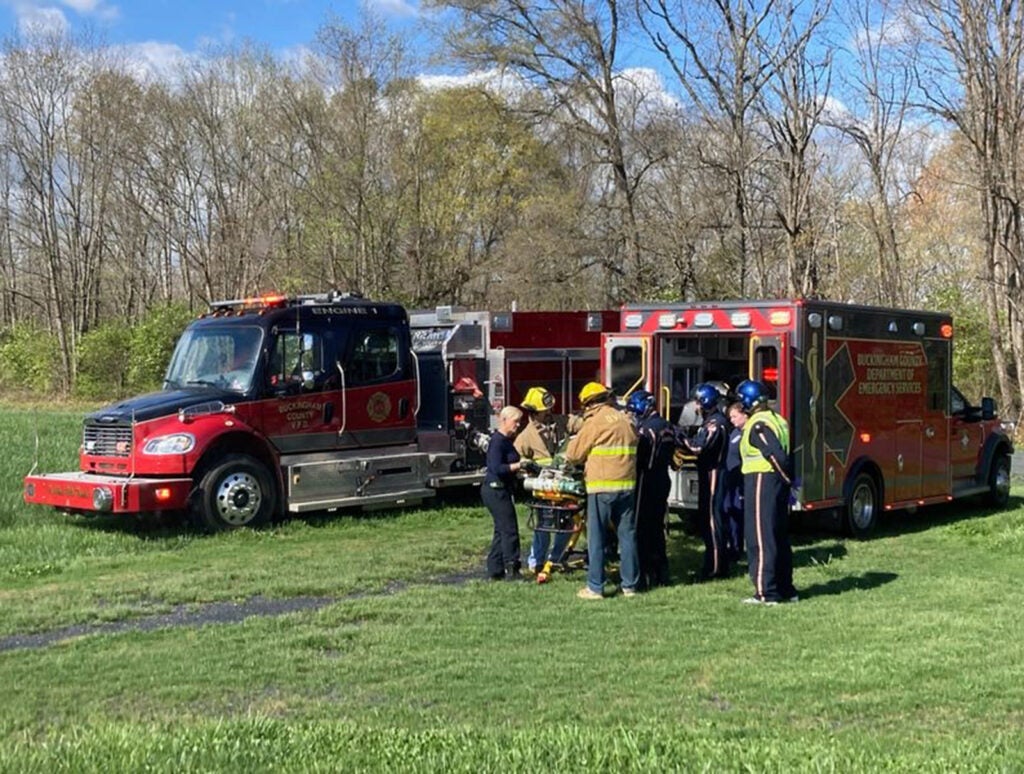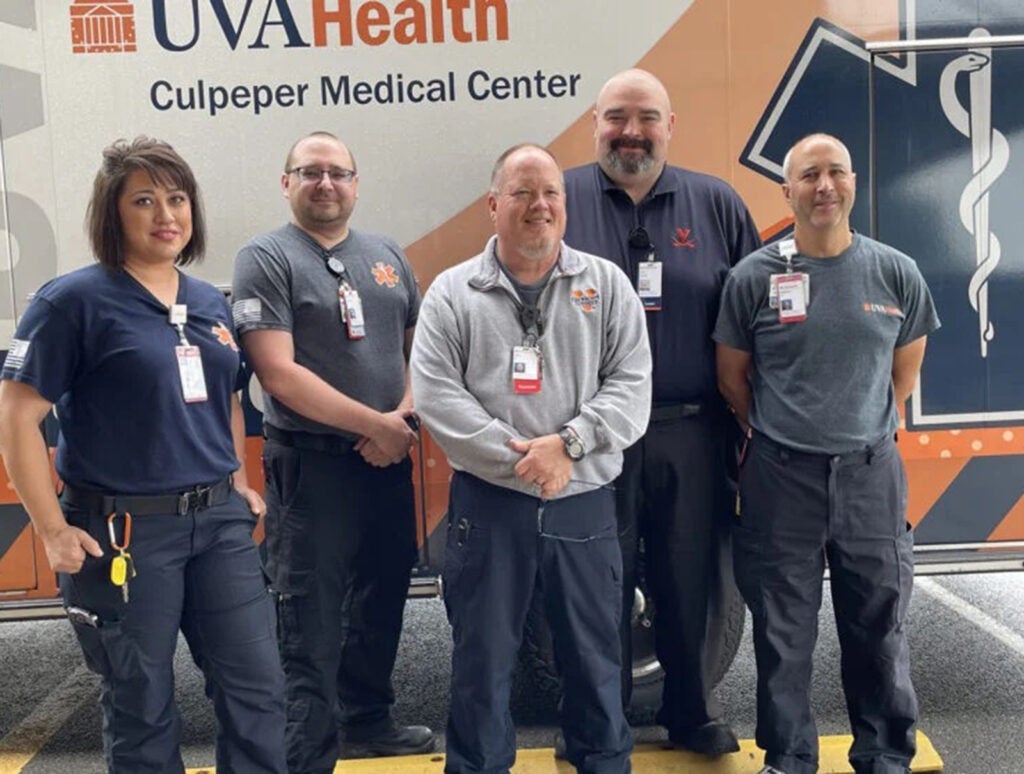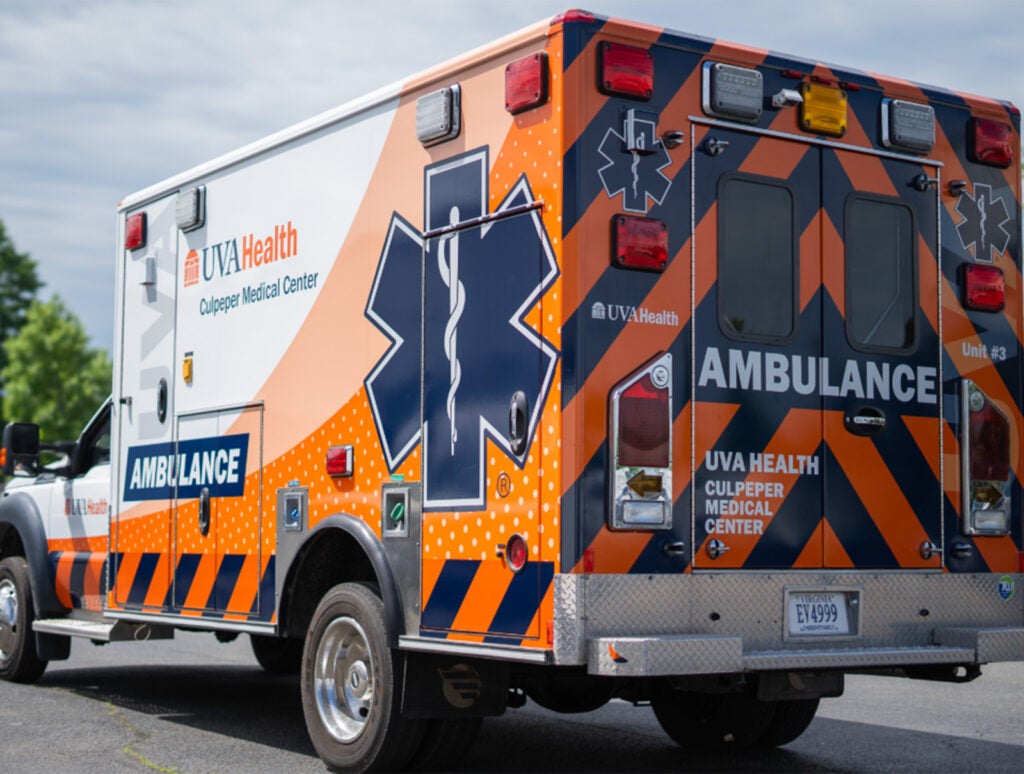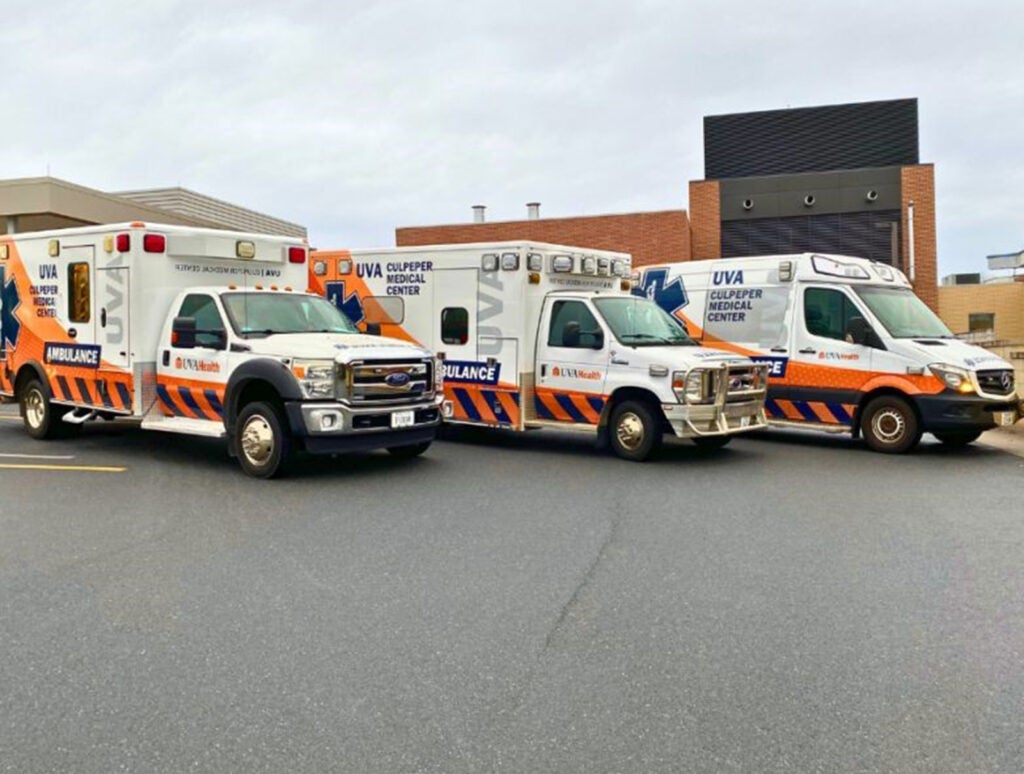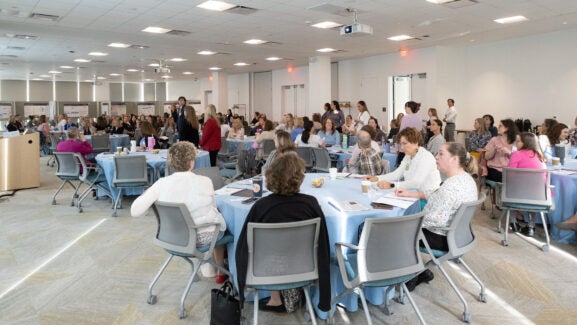
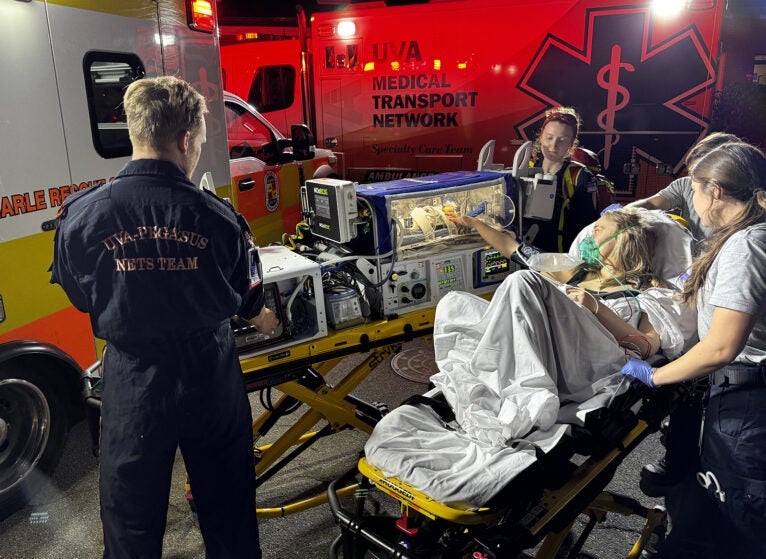
2025 National EMS Week Is May 18-24: We Care. For Everyone.
May 18-24, 2025 marks 2025 National Emergency Medical Services (EMS) Week and EMS team members at all UVA Health medical centers are sharing how they’re supporting this year’s theme: “We Care. For Everyone.”
Jermaine Clayborne, MSN, APRN, CFRN, NEA-BC, FP-C, is marking his 10th anniversary at UVA Health — serving as Director, Medical Transport Network, for six of those 10 years.
He began his career in EMS at the age of 16 as a volunteer emergency medical technician (EMT) with his local rescue squad. Many years and a couple of degrees later, as he puts it, he’s a dual-credentialed nurse/paramedic who says it’s a privilege for him to support one of the top EMS programs in the country.
“While I still occasionally get to work clinically, my primary focus has shifted to supporting those who provide care,” explains Clayborne. “It’s a different kind of satisfaction knowing I can impact far more patients by supporting the team behind the scenes — their patients are my patients. I’ve also been fortunate to have incredible mentors during my time at UVA Health, and now, it’s deeply rewarding to mentor others, including our EMS Operations Supervisor Brian Allen, AAS, NRP, CMTE, who recently became a Certified Medical Transport Executive!”
By the Numbers
University Medical Center EMS consists of:
- Medic V | ~45 EMTs and paramedics | Responds across University Medical Center complex and handles ambulance transport to and from UVA Health facilities — providing care at the EMT and paramedic level.
- Pegasus Air and Ground, marking 40 years in 2024 | ~20 nurses and paramedics | Provides air and ground ambulance transport for patients requiring emergent or critical care.
- Newborn Emergency Transport System (NETS) | ~10 Nurses & Paramedics | Dedicated neonatal and pediatric transport team, delivering specialized care during air and ground transport.
- Special Event Medical Management (SEMM) | ~60 EMTs, paramedics and 4 EMS physicians | Offers on-site medical care for events such as concerts at John Paul Jones Arena and football games at Scott Stadium.
Serving the ‘Sickest of the Sick’
“Our EMS teams play a critical role in bringing the ‘sickest of the sick’ to UVA Health,” Claybore adds, explaining that In collaboration with the in-hospital ECMO [Extracorporeal Membrane Oxygenation], Pegasus and NETS facilitate ECMO transports — essentially heart-lung bypass — in the back of an ambulance or helicopter.
In addition, Medic V team manages lower-acuity transports, playing a vital role in maintaining patient flow and system throughput. Event Medicine prevents an influx of patients to our Emergency Department from mass gatherings through on-site medical management. And, Clayborne says, local EMS providers frequently call on Pegasus Air and Ground to assist with critically ill or injured patients. These teams operate mobile intensive care units equipped with whole blood, portable ultrasounds, and lab analyzers.
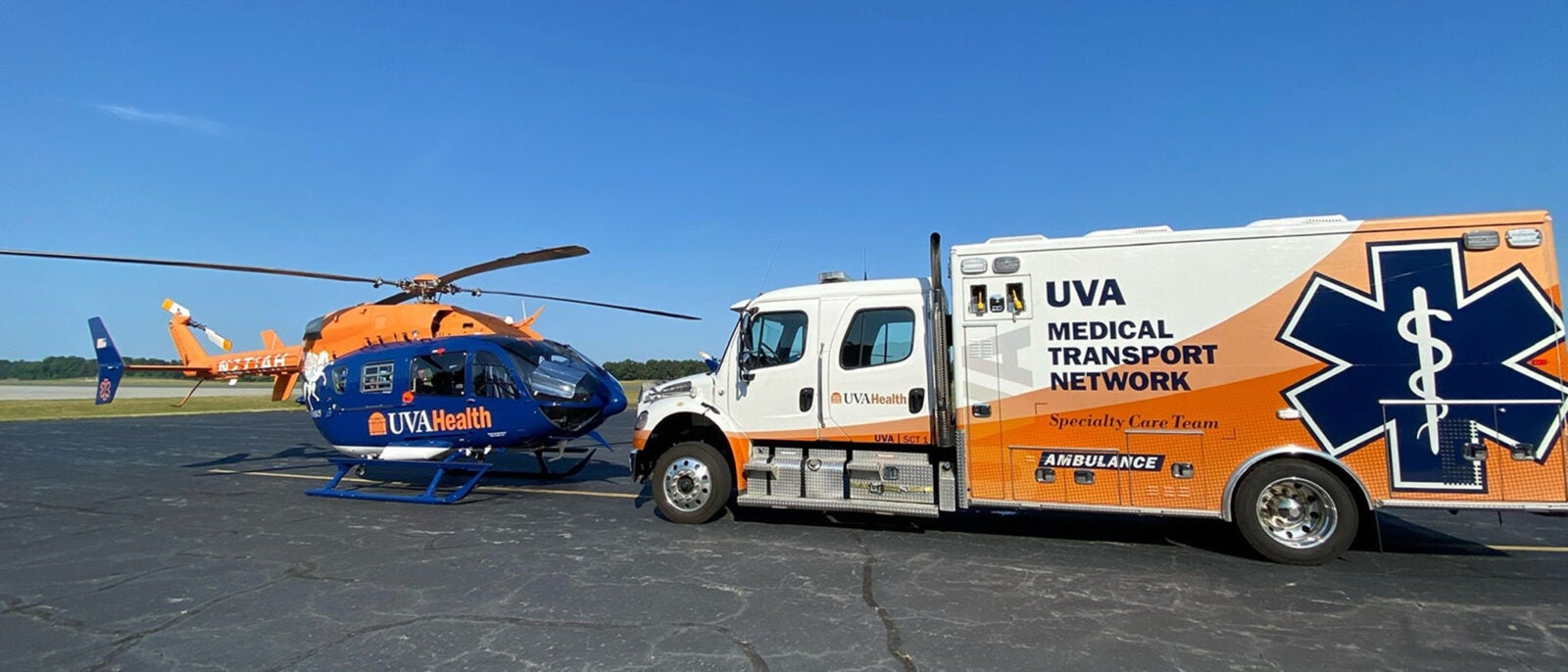
Synonymous WIth Service
Several University Medical Center team members also dedicate their time and energy to volunteering with local EMS agencies. They include:
- Greg Cassis, JD, NRP, FP-C, CMTE, UVA Health Flight Paramedic: Harrisonburg Rescue Squad
- Bob Knox, MSN, RN, CFRN, NRP, UVA Health Flight Nurse: Western Albemarle Rescue Squad
- Sam Loya, BSN, RN, CFRN, NRP, UVA Health Flight Nurse: Western Albemarle Rescue Squad
- Val Quick, MSN, RN, TCRN, EMT-I, UVA Health Trauma Program Manager: Western Albemarle Rescue Squad
- Nikhil Williams, AAS, RN, FP-C, C-NPT, UVA Health PICU Nurse: Charlottesville Albemarle Rescue Squad
- Hamilton Young, BS, NRP, FP-C UVA Health Clinical Care Lead, Pegasus: Charlottesville Albemarle Rescue Squad
'Incredible Experience'
UVA Health EMS teams also make an impact on the next generation. Carol Clark, M.Ed., BSN, RN, works at UVA Health Children’s Quality and teaches anatomy and physiology at Cornerstone Christian School in Harrisonburg, Virginia. She introduced nine high school students, teachers, and a parent to UVA Health EMS teams (right) at Charlottesville Airport. They got a firsthand look inside the Pegasus helicopter and a NETS ambulance — and explored tools and technology.
“Our deepest thanks and appreciation for your generosity of time, thoughtful planning, and the incredible experience you gave us during our recent visit,” wrote Clark in a follow-up letter. “Your willingness to share not only your highly specialized skills and lifesaving equipment, but also your personal stories and experiences, left a powerful and lasting impression on the students!”
All Hands on Deck
UVA Health University Medical Center EMS teams receive physician medical direction, as well:
- UVA School of Medicine’s dedicated team of EMS faculty practice clinically at the University Medical Center Emergency Department — supporting the fully accredited EMS Fellowship Program and providing medical oversight to EMS agencies across the region.
- Matt Cowherd, BPHM, NRP, serves as the EMS Liaison for University Medical Center and is a key member of the Prehospital Education team. He acts as a central point of contact for communication between EMS agencies and UVA Health, supporting collaboration and information flow. Cowherd works closely with Emergency Medicine, Trauma, Neurology, and Cardiovascular teams on quality improvement initiatives, while the Prehospital Education team offers initial EMT and Advanced EMT courses, and ongoing continuing education for regional EMS partners.
The Front Line
How do our EMS teams support our 10-year UVA Health strategic plan?
“EMS is the front line of healthcare delivery, extending UVA Health’s reach beyond hospital walls. Through high quality care and transport, our Medical Transport Network enhances access and builds trust in underserved and rural communities. Our EMS physicians, through medical direction, and our Prehospital Education team, through outreach and continuing education, further strengthen this impact across the region,” answers Clayborne.
They’re also supporting our strategic plan initiative of One UVA Health team. Clayborne says Medical Transport Network leaders have been collaborating with Erik Gould, AS, NREMT-P, Ambulance Operations Manager, UVA Culpeper Medical Center, to align care and implement best practices, and Medical Communication Center (Medcom) assumed responsibility for dispatch and tracking of Culpeper’s ambulance operations.
UVA Health Community Medical Centers
Who’s at the helm of EMS at the three UVA Health community medical centers?
- Erik Gould, AS, NREMT-P, Manager, Ambulance Transport Team | 40 team members
- Meghan Taylor, Manager, Culpeper Medical Center Emergency Department | 13 EMTs and 7 paramedics
- Kristen Kirkpatrick, Manager, Haymarket Medical Center Emergency Department
- Melissa Morin, RN, BSN, CEN, Nurse Manager, Emergency Services, Prince William Medical Center Emergency Department | 5 EMTs
Pivotal Role
“Emergency Medical Services (EMS) teams at the three UVA Health community medical centers play a pivotal role in delivering high quality care during some of the most critical moments in a patient’s journey,” says Gould. “These dedicated professionals ensure patients are safely and efficiently transported among healthcare facilities or to their homes — all while receiving essential medical support.”
Emergency medical technicians (EMTs) serve as the frontline providers of basic life support (BLS). They are trained to perform CPR, administer oxygen, control bleeding, stabilize fractures, and monitor patients during transport. Whether transitioning a patient to a specialized care facility or returning them home, EMTs provide “consistent, compassionate care throughout the journey.”
Critical Decisions
Gould adds that building on this foundation, paramedics deliver advanced life support (ALS). Their responsibilities include administering intravenous medications, performing endotracheal intubations, cardiac monitoring, and executing complex medical procedures during transports. Paramedics are highly trained to make critical decisions in high pressure situations and work closely with healthcare providers to ensure continuity of care during transit. Their expertise allows for the continuation of advanced treatment plans and specialty care procedures, even between facilities.
‘Deeply Human’
“The work of EMS professionals is not just clinical — it’s deeply human,” describes Gould. “It’s incredibly rewarding to be there in someone’s most vulnerable moment, offering comfort, care, and sometimes, lifesaving intervention."
He explains that each EMS call requires more than just medical skill. “Providers must build trust with scared or injured individuals, reassure families, and respond with empathy and professionalism — often under intense pressure. These are experiences that stay with team members long after a transport is completed. For many, the sense of purpose derived from making a real difference in people’s lives is what keeps them engaged and fulfilled in this demanding career.”
Shaping the Future
“Our EMS teams are instrumental in helping achieve the health system’s strategic goal of ‘Strengthening Our Foundation.’ By streamlining the process of moving patients across UVA Health facilities, EMS teams ensure access to specialized care that may not be available at the patient’s original point of entry,” Gould explains.
He says this capability enhances system-wide efficiency, reduces unnecessary delays, and keeps patients within the UVA Health network. And he believes EMS contributions support the strategic plan initiative of One UVA Health’ — a unified, coordinated, health system focused on excellence in care and service.
Gould explains: “While work may take place on the move, the impact is lasting. By facilitating timely care transitions and ensuring continuity, we’re helping to shape the future of integrated, patient-centered care.”
Latest News

